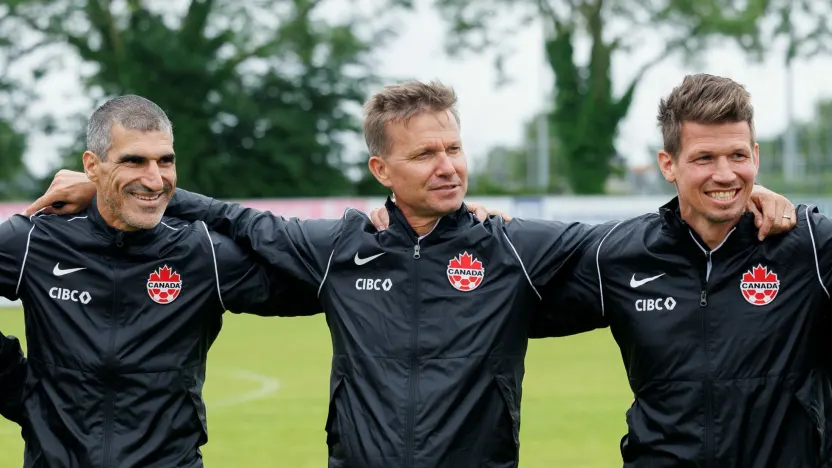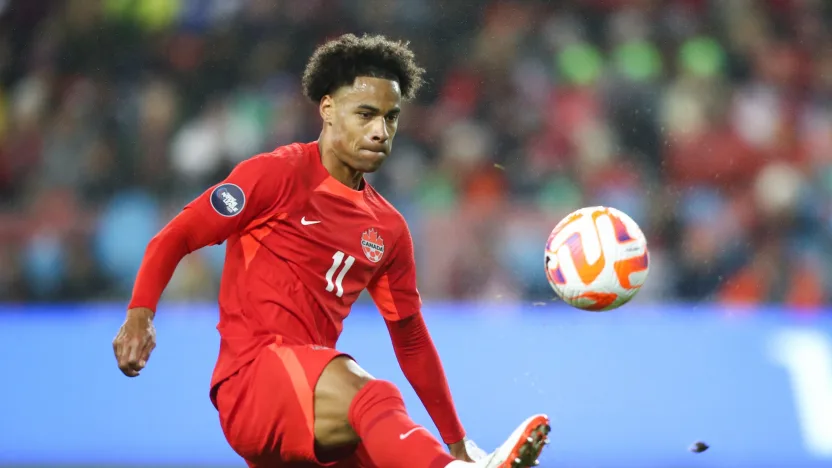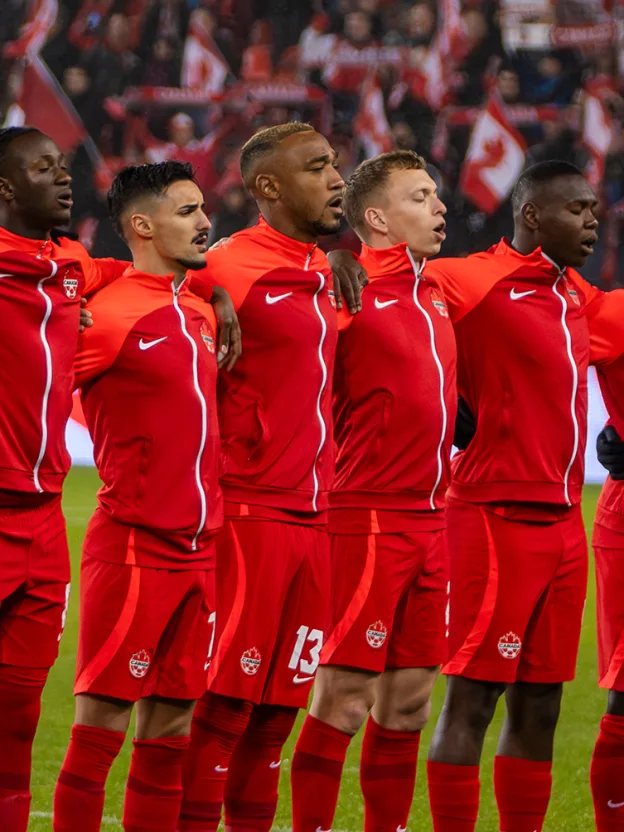Opportunities like this have been few and far between in the history of Canadian Soccer. In fact, the Canadian men’s national team have played the Netherlands and France just once each in their history before they meet both in one week, starting on Thursday in Rotterdam, and then Sunday in Bordeaux. Canada’s only meeting with France came in a 1-0 loss in the opening match of the 1986 World Cup in Mexico, and they met the Dutch in a friendly in 1994, a 3-0 loss. Decades later, similar results wouldn’t be a surprise. However, for the national team as a collective, the organization, new manager Jesse Marsch, and the individual players, the challenge and platform that these two matches will provide are irreplaceable. “Being able to play against these types of teams is outstanding,” said Alphonso Davies in a press availability this week. “The boys are excited and we are going to see how we match up against them.” Facing the second- and seventh-ranked national teams in the World, this Canadian group will get essential experience in what it looks like to play at the highest level of international football. At the 2022 World Cup, it quickly became clear that this group needed more matches against top-tier opposition.
RELATED: PREVIEW: CanMNT begin Marsch era with baptism of fire vs. Netherlands || ‘You have to rise to the occasion’: Alphonso Davies on how Jesse Marsch has challenged him for CanMNT
For Marsch, meanwhile, he will get an early look at how his tactical approach with this new group of players fares against the very best in the world. It is also a critical opportunity to assess his squad, and see which players can hang at this high level ahead of a big Copa América tournament — which opens against World Cup winners Argentina on June 20. “It’s such a massive challenge for us on our first time on the pitch together,” said Marsch. “There’s a lot of things that I’ve tried to address and make the players aware of in terms of what the game will look like. But I’ve also really tried to focus on ourselves, and what we want to try to achieve and how we want to lay a foundation for what we want to do in the future. We know that we are in for a very difficult match, but I think there is a level of excitement for that as well.”

Playing against star-studded teams of this calibre will also give the players who step onto the pitch at De Kuip and Matmut Atlantique a platform with international attention. There are multiple key Canadian players who could well be making high-profile moves this summer with the constant links between Alphonso Davies and Real Madrid, the number of teams interested in Jonathan David, and Ismaël Koné being linked to AS Roma, for example. All of these players have proven they can play at the highest level of the club game, but a strong showing against France and the Netherlands, especially for a player like Koné, certainly wouldn’t hurt their stock. There are multiple other players, meanwhile, looking to cut out a more regular spot in Marsch’s national team who could unquestionably benefit from good performances this week. Players like Derek Cornelius, Moïse Bombito, Mathieu Choinière, Theo Bair and Jacob Shaffelburg are all part of the next group intent on becoming national team regulars. It will be a chance for these players to experience firsthand what they need to develop in order to get to the next level, but also potentially the platform required and first step toward reaching that stage. Getting key Canadian players at the highest levels possible for their growth ahead of the 2026 World Cup is critical. These matches will be a unique opportunity to potentially expedite that process for a few Canadian players.

Tajon Buchanan is a perfect example of this playing out. He first came on Inter Milan’s radar through an impressive performance against Belgium at the 2022 World Cup in Qatar, one he followed up by assisting on Canada’s first-ever World Cup goal against Croatia. Before a ball had been kicked in training in preparation for these matches, it was already a huge win for the organization to secure friendlies like this against top European opposition. The Canadian soccer organization will get an opportunity to observe what the sport looks like from a business, logistics and governance standpoint in two of the top footballing countries in the world. So while in the history books, Canada vs. Netherlands and Canada vs. France will be listed as nothing more than international friendlies, they undoubtedly carry far more weight. At every level of the organization, this is a chance for Canada to learn lessons in world class that will be foundational to the upcoming monumental years for the program.
